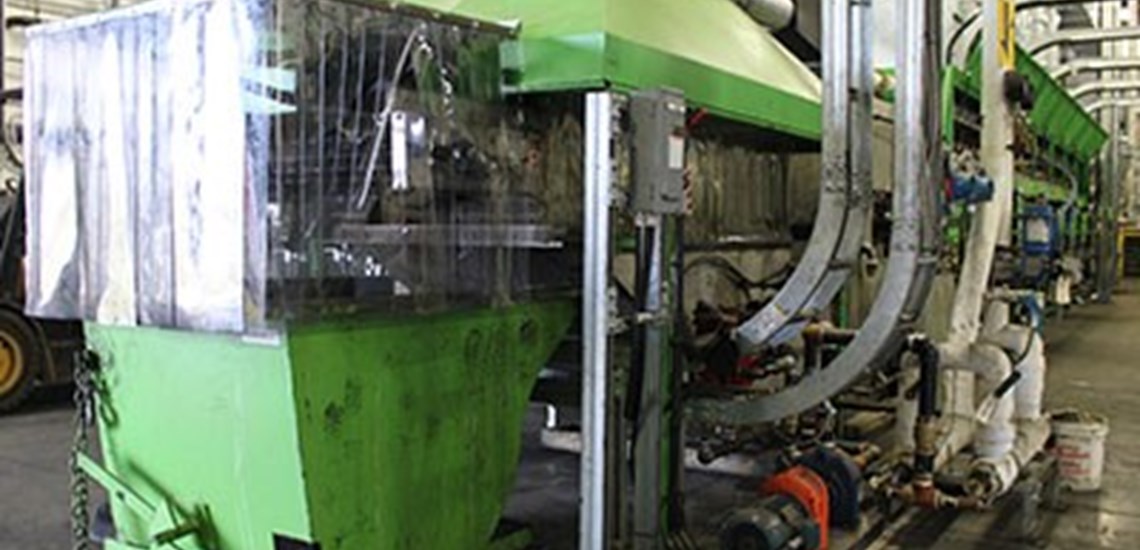Ellsin plans to double production at its microwave pyrolysis plant in Sault Ste. Marie
Ellsin Moves up a Gear
Ellsin Environmental, the EWI subsidiary, currently processes up to 10 tonnes of tyres per day. It hopes to double that production if it gets its permit upgraded
If successful, Ellsin’s application will expedite the approval process for its production increase by exempting it from requirements of the Environmental Assessment Act.
Ellsin uses microwave radiation to process tyre waste, turning it into carbon black, scrap steel, syngas and oil.
It argues that the potential environmental effects from doubling its Sault production are similar to effects from its existing 10-tonnes-a-day facility, as no structural changes will take place.
If the application is approved, Ellsin will still need amendments to its existing air and waste environmental compliance approvals.
In 2019, the company was convicted of two charges related to altering a waste management system without ministry approval and failing to submit reports within the required time frames.
It was fined $12,000 plus a victim fine surcharge of $3,000.
“Ellsin’s Sault Ste. Marie site is located in an industrialised area near Algoma Steel and its operation is already regulated by several permits and approvals, including environmental compliance approvals for air, noise, and waste,” says a provincial notice of the new application.
“The ministry recognises that Ellsin completed an assessment of environmental effects from the operation of a commercial facility treating 20 tonnes per day of tyre waste in 2018 as part of an environmental screening process. Given this previous work, an exemption from additional environmental assessment requirements is being proposed.”
Potential environmental effects listed in the notice are associated with:
- contaminant emissions to the atmosphere from the thermal treatment of tire waste and production of black plastic concentrate, and associated equipment;
- noise emissions from the site;
- storage of tire waste received at the site; and
- storage of recovered materials and residual waste generated from thermal treatment and associated processes.
“While the thermal treatment of tyres can generate greenhouse gases, the proposal has the potential to offset greenhouse gas emissions associated with manufacturing of products by replacing virgin raw materials with outputs from the thermal treatment of the tyre waste, or through use as an alternative source of energy. Ellsin is also looking at the opportunity to generate electricity with the syngas produced from the thermal treatment process,” the notice states.
Source: Northern Ontario Business




















